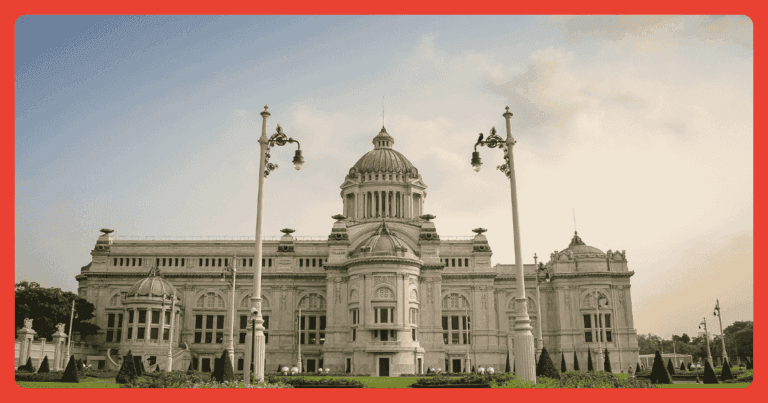
Table of Contents
Living as an expat in Thailand is an incredible experience, but it comes with one universal certainty: immigration paperwork. Securing your initial long-term visa is only the beginning. To maintain your legal status, you must master two recurring tasks: the 90-Day Report and the Annual Visa Extension (Renewal).
This guide demystifies the entire process. We’ll explain exactly what you need to do, the documents you’ll need, and the common mistakes to avoid for a stress-free experience at the immigration office in 2025.
The Golden Rule: Extension vs. 90-Day Report Explained
This is the single most important concept to understand. These are two completely separate requirements.
Think of your visa like a car:
- The Annual Visa Extension is like renewing your car’s main registration. You do it once a year to keep your permission to stay (to keep the car legally on the road).
- The 90-Day Report is like confirming your parking address. You do it every 90 days to tell immigration where you live. It does not extend your stay.
You must do both to stay legal.
1. The 90-Day Report: Your Quarterly Check-In
Every foreigner residing in Thailand on a long-term visa must report their current address to the Immigration Bureau every 90 days. This is mandatory, even if you haven’t moved.
When to Report:
You have a specific window: 15 days before your due date or up to 7 days after your due date. The exact date is stamped in your passport during your last report or extension.
How to Report:
- In Person (Most Reliable): Visit your local immigration office. This is the foolproof method, especially if it’s your first time or if you are reporting late.
- By Mail: You can send the required documents via registered mail (EMS). You must send it at least 15 days before your due date and keep the postal receipt as proof.
- Online: The Immigration Bureau has an online reporting system. ⚠️ Warning: This system is famously unreliable and often goes down, especially near the reporting deadlines. If you use this method, do it 10-15 days early so you have time to go in person if it fails.
Penalties for Late Reporting:
The fine is 2,000 THB if you report late yourself. If you are caught by an officer before you report, the fine can be up to 5,000 THB. Repeatedly failing to report can negatively impact your future visa renewals.
2. Tourist Visa Extension (The “30-Day Top-Up”)
For those on a 60-day Tourist Visa (TR), a one-time extension is usually possible.
- Duration: 30 extra days.
- Where: Any local immigration office in Thailand.
- Fee: 1,900 THB (paid in cash).
- What to Expect: Immigration offices can be very busy. Arrive early in the morning with all documents perfectly in order. Bring a book and a power bank, as you may have to wait for several hours.

3. Annual Visa Renewals (The “Big One”)
This is the once-a-year process to extend your long-term visa. You must prove that you still meet all the original requirements for your visa category. The application fee for all standard renewals is 1,900 THB.
Retirement Visa (Non-Immigrant O-A) Renewal
- Financial Proof: Provide updated bank statements showing either 800,000 THB in a Thai bank account OR proof of 65,000 THB monthly income.
- Health Insurance: A valid health insurance policy meeting the minimum coverage requirements.
- 💡 Pro Tip: The 800,000 THB must be “seasoned.” This means it must have been in your account for at least 3 months before your renewal date. You cannot deposit it the week before.
Marriage Visa (Non-Immigrant O) Renewal
- Financial Proof: Provide bank statements showing 400,000 THB in a Thai bank account (seasoned for 2 months) OR proof of 40,000 THB monthly income.
- Proof of Relationship: You’ll need your original marriage certificate, and your Thai spouse must be present to sign the documents.
- 💡 Common Pitfall: Immigration may ask for photos of you and your spouse together at your home, along with a hand-drawn map to your residence, to prove the marriage is genuine. Be prepared.
Work Visa (Non-Immigrant B) Renewal
- Key Document: A valid, up-to-date Work Permit.
- Company Documents: Your employer must provide a large set of updated company papers, including tax forms (PND.1), a list of employees, and a letter confirming your employment.
- 💡 Pro Tip: Your Non-B visa and your Work Permit are linked but renewed at different ministries. A good HR department will handle both simultaneously, starting at least one month before expiry.
The Ultimate Pre-Immigration Checklist
Preparation is everything. Before you go to immigration for an annual renewal, have this folder ready.
✅ Core Documents for Everyone:
- Original Passport with at least 6 months validity.
- Completed Application Form TM.7 (download online or get it there).
- Recent Passport Photo (4×6 cm), glued to the form.
- Application Fee: 1,900 THB in cash.
✅ Essential Photocopies (Sign Every Single Page!):
- Passport photo page.
- Page with your current visa stamp.
- Page with your latest extension stamp.
- Page with your latest entry stamp into Thailand.
- Your TM.6 departure card (if you still have one).
✅ Visa-Specific Documents:
- For Retirement/Marriage Visa: Your updated bank book (passbook) AND a letter from the bank confirming your balance (issued on the same day).
- For Work Visa: Your original Work Permit and all company documents.
- For Retirement Visa: Your health insurance certificate.
- For Marriage Visa: Your marriage certificate and your spouse’s ID card and Tabien Baan (house registration).
✅ “Just-in-Case” Documents:
- Proof of your address: a copy of your TM30 receipt and your rental agreement. You may not be asked for it, but if you are, you’ll be glad you have it.
Frequently Asked Questions (FAQs)
What is a Re-Entry Permit and do I need one?
This is CRITICAL. If you have a one-year extension of stay (single entry) and you leave Thailand for any reason, your extension becomes VOID upon exiting. To prevent this, you must get a Re-Entry Permit before you leave. You can get a single-use permit (1,000 THB) or a multiple-use permit (3,800 THB) at the immigration office or at the international airports.
How early should I apply for my annual visa renewal?
Immigration accepts renewal applications up to 30 days before the expiration date (45 days for some offices). To be safe, apply 2-3 weeks before your visa expires.
My visa expires on a weekend. What should I do?
You must complete your extension on the last working day before it expires. Immigration offices are closed on weekends and public holidays.
Conclusion
Visa extensions and 90-day reporting are a fact of life for every expat in Thailand. While it can seem daunting, the process is very manageable with good organization. By understanding the rules, marking your calendar, and preparing your documents perfectly, you can make every trip to immigration a smooth and successful one.
Share this post:
This post was last updated September 2025.








